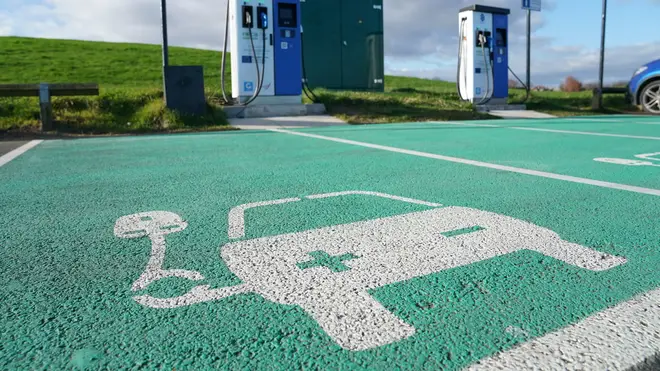
Ian Payne 4am - 7am
1 March 2021, 00:34

Halfords warned the cost of new battery-powered cars is too high for many motorists despite Government grants.
Incentives for buying electric cars should be extended to second-hand purchases, according to a new report.
Halfords made the recommendation as it warned the cost of new battery-powered cars is too high for many motorists despite Government grants of up to £3,000.
The most basic new EVs (electric vehicles) start at around £18,000 whereas an average non-luxury model costs nearly £30,000, the motoring products and services provider said.
It called for grants or loans to be made available for drivers across the UK looking to buy used EVs, to boost adoption of the technology.
Transport Scotland, an agency of the Scottish government, recently introduced interest-free five-year loans of up to £20,000 to cover the cost of a used EV.
Some 2.17 million used vehicles changed hands in the UK between July and September last year, according to the Society of Motor Manufacturers and Traders.
Around 590,000 new cars were registered over the same period.
Analysis by Halfords in partnership with research group RAND revealed a regional disparity in the take up of EVs.
Hull, Peterborough and Plymouth have the lowest adoption rates of privately owned ultra-low emission vehicles out of 27 UK towns and cities studied, according to figures seen by the PA news agency.
Their share of the total fleet ranges between just 0.13% and 0.17%.
The London boroughs of Wandsworth and Barnet have the highest figures at 1.60% and 1.42% respectively.
The study also found a correlation between average household income and private EV ownership.
Andy Randall, managing director of Halfords Autocentres, said: “Our research indicates that a more targeted approach to EV incentives may be required if the whole country is to join the green transport revolution.
“We believe this should include financial support for second-hand EV purchases, in the form of interest-free loans or grants, and a renewed focus from central Government on targeting the ongoing EV charging infrastructure rollout in low-demand areas.
“This is crucial if we are to reach the ambitious 2030 target for the end of petrol and diesel vehicle sales.”